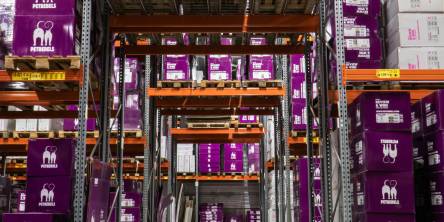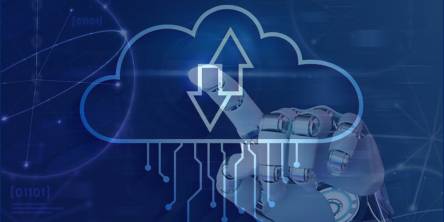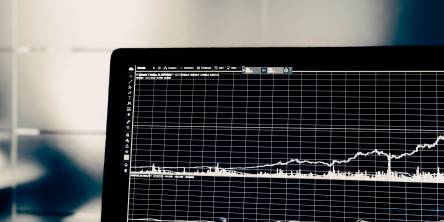Harvesting the Benefits of IoT in Agriculture Industry

There is an unprecedented level of technological adoption in agriculture. The Internet of Things (IoT), an emerging technology at one time, has taken the mainstream position through its wider adoption. IoT integrates various technologies such as sensors, actuators, embedded systems, networks, wireless communication, web technologies, etc.
IoT-based farming is a smart system used to monitor crop fields and livestock with the help of sensors or devices that measure light, humidity, temperature, soil moisture, automation of processes, and much more to enhance agricultural product quality and yields. The data generated is used for analytics and results for making decisions about irrigation requirements, controlled use of pesticides and fertilizers, disease prevention in crops and livestock, and overall farm management.
With this blog, I’ll explore the advantages of IoT in the agriculture industry.
Exploring The Benefits of IoT In Agriculture
- Improved data collection: IoT-enabled smart agricultural solutions enable real-time monitoring of farm conditions, crops, and livestock. This data can be used to get insights and anticipate requirements and issues early on. The data that is changed using IoT can play a crucial role in planning and making informed decisions.
- Quality improvement: IoT devices can help send data about crops, land & livestock in real time and 24x7 while enabling timely detection of issues and taking corrective measures early on. It can result in better crop yields, healthier land & livestock, which translates into better revenue.
- Automation: IoT helps automate agricultural tasks, such as water flow adjustments for farm irrigation based on soil moisture level. The continuous data flow ensures that water flow can be reduced, increased, or even stopped as needed.
- Remote monitoring: Real-time crop and livestock monitoring is possible with IoT. Smart farming systems can send alerts on mobile devices in case there is a need for physical intervention for soil, crop, or livestock trouble.
- Pest control and fertilizer management: IoT sensors can easily detect pests and dispense pesticides for crop protection. Because sensors control pesticide use, it can be sprayed in the targeted areas in the right quantities, reducing overuse. IoT sensors can warn of low fertilizer levels & using crop yield maps can help determine the areas in need of more fertilizer. It can also track the quantity of fertilizer used in the season and in which areas. Such monitoring can help reduce costs, keep runoffs to a minimum & minimize environmental damage.
- Improved ROI: Automation can directly impact operational costs, increase productivity, and make farming more efficient. Sensors and data analytics help reduce water wastage, make energy consumption more efficient, and limit using fertilizers and pesticides.
- Drought monitoring: Droughts can pose a big challenge to the agricultural industry. IoT solutions can help in detecting groundwater shortages early on. IoT systems can also give out information on irrigation to maximize plant hydration and yields.
- Automation in harvesting: The use of robotics is increasing for harvesting crops, which saves labor costs and results in consistent crop harvesting and yield.
- Helps reduce the carbon footprint: IoT in agriculture can help reduce the use of fertilizers and pesticides in farming. Precision farming can save water resources and energy by ensuring its use only as per need. This approach reduces the overall carbon footprint and offers a more organic and cleaner crop than conventional farming methods.
Final Words
IoT in agriculture is already helping agriculture immensely, and its future holds enormous potential. It has revolutionized crop cultivation, livestock raising, and farm management and assists in finding the balance in fast-depleting natural resources like water. IoT enables resource utilization optimization and enhanced productivity and drives data-driven decisions for sustainable and efficient farming practices.
An experienced IoT application development company can help cover the lifecycle of the Internet of Things in agriculture, from engineering and design to app development and support to ensure success in smart farming.
Similar Articles
For modern businesses to thrive, ensuring the effective management of inventory stands has become vitally important. Inventory management stands as a cornerstone of success. And the emergence of the Internet of Things (IoT) has introduced a new era of connectivity and efficiency across diverse industries.
Do you know what the following e-commerce companies have in common: Amazon, Walmart, eBay, and more? All of these e-commerce companies' apps make use of Java. Java is decidedly among the leading choices of programming language for e-commerce applications because it offers a world of benefits; for example, since Java code can be run on any platform with a Java Virtual Machine (JVM), users of e-commerce apps made with Java can access the said apps on a variety of devices.
Nikola Tesla in 1926, once described what is now called a mobile phone as a telephone that can fit into one's “vest pocket.” As otherworldly as that idea was then, nearly a century later, the reality is even more astounding.
Given the staggeringly high amounts of data being generated worldwide every single day, it ought to come as no surprise that organizations often struggle to pick the right tools to help them effectively harness the potential of all their data.
Managing properties can be a difficult task with the right tools. Property owners must find and use the best property management software. It can be a long and tedious process as there are many options in the property management software market.
In the ever-evolving financial services landscape, industry challenges are numerous and complex. From stringent regulations to rapidly advancing technology and changing consumer expectations, financial institutions face many obstacles.
The human learning capability is a great resource for helping technology evolve and grow, breaking boundaries, and creating new ones. Emulating the ability of humans to learn at a gradual but retentive pace, Machine Learning is the latest power monster that is redefining human-machine interaction.
In the ever-evolving landscape of low-code development, Microsoft's Power Platform stands out as a powerful tool for building custom applications. In today's dynamic digital landscape, creating and managing web pages is no longer the exclusive realm of professional web developers
In the data-driven business world, where information is of utmost priority, organizations are increasingly turning to data warehousing and data marts to harness the power of their data. These data management solutions are pivotal in transforming raw data into actionable insights.









